Supporting Black Children's Language, Literacy, & Joy
Description
Supporting Black Children on Their Paths to Greatness: Language, Literacy, and Joy is a series of virtual convenings that bring together a small group of people who are committed to Black children on their path to greatness, with a specific focus on language and literacy. Our goal is to create a collaborative space for sharing strategies that work well in advancing research, educational practice, advocacy, and dialogue and collaboration between researchers and practitioners. You can read about members of the collective below.
Each convening includes one or more talks by members of our emerging community of practice, as well as opportunities to discuss and to get to know one another. In 2022-2023, we meet roughly once a month, and each convening has a theme:
- Enrichment in and beyond the classroom
- Black kid language, literacy, and joy
- Gifted and talented education
- Professional development on language variations in schools
- Language ideologies played out in schools and communities
- Bringing it together, looking ahead
For more information about the program, please contact Dr. Monique T. Mills at mtmills@uh.edu.
Community Members
Jeannette Alarcon
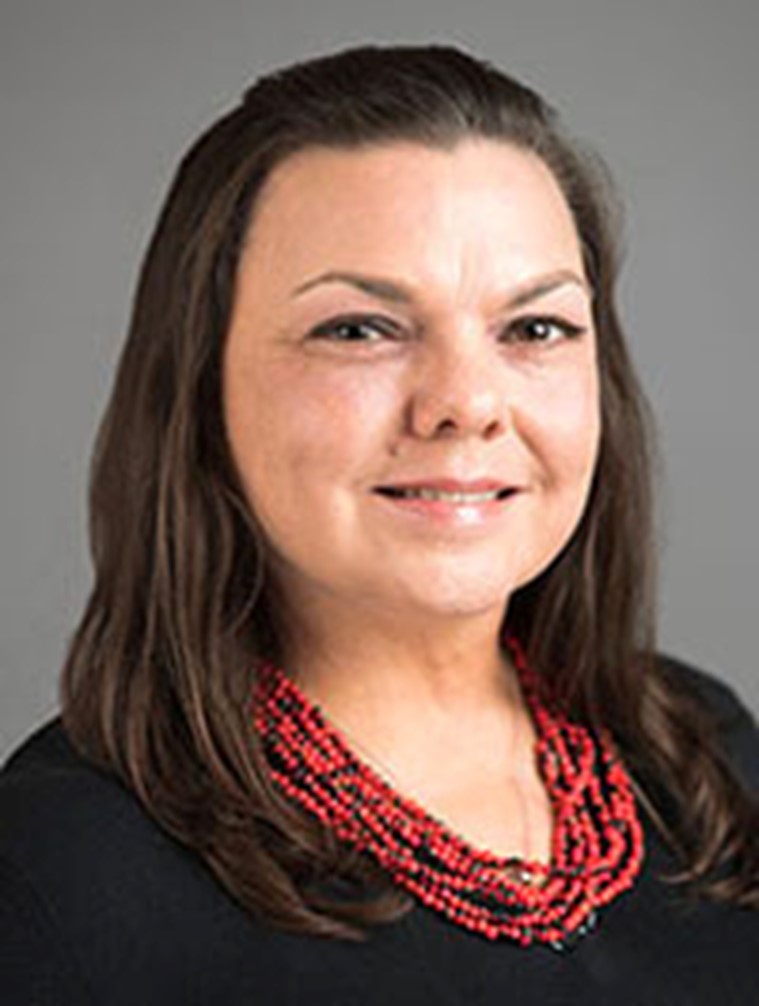
Dr. Jeannette D. Alarcón is an Associate Professor in Teaching and Teacher Education in the Department of Curriculum and Instruction at the University of Houston. She has expertise in community-centered practices to create more equitable learning environments. She currently works with pre-service and in-service teachers to develop equity-focused practices. Her university teaching includes courses on equity in education and teacher education in the undergraduate, MEd and PhD programs. Her research and funded projects focus on professional development for teachers and teacher educators using an equity lens to develop culturally responsive and sustaining pedagogies.
Jessica Bagneris
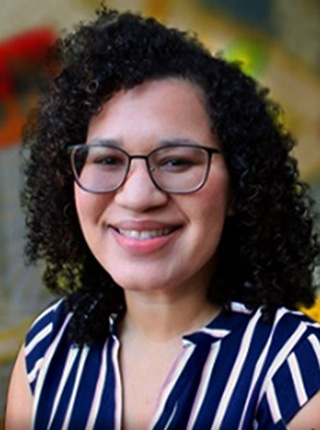
Dr. Bagneris joined the University of Houston Graduate College of Social Work in August 2022 as an assistant professor.
As a young African American girl who experienced Hurricane Katrina, Dr. Bagneris witnessed as Hurricane Katrina devastated her city, her home. Overtime, she realized that Hurricane Katrina was a catalyst for Trauma, not only because it was a natural disaster, but because of the chronic lapse in governmental recovery efforts among marginalized communities of color and low socioeconomic status. This realization led to a passion about conducting work that focuses on promoting justice and alleviating negative outcomes among marginalized children and families who are at greater risk of experiencing trauma.
To accomplish this aim, Dr. Bagneris maintains an intersectional and interdisciplinary approach to research and practice, conducting work across social work, public health, education, and technological sciences. Her research is dedicated to conducting trauma-informed work that focuses on (1) addressing biopsychosocial outcomes impacted by disparities harming marginalized populations and (2) intervening upon those disparities to build resiliency and restructure systems for equity and opportunity. In addition to her interdisciplinary research, her practice experience also involved working with teams of social workers, public health workers, and educators to alleviate macro- and micro-level concerns for clients and communities.
Currently, her work is focused on developing a better understanding of the disparities impacting marginalized youth within the education and public health systems, focusing heavily on assessing current practices and developing better tools to promote equity across educational systems and systems of health. Her research aims to highlight the interdisciplinary nature of social work practice and research by developing trauma-informed and evidence-based interventions that bridge the divide between disciplines in order to impact change for marginalized populations across systems.
Erin Baumgartner
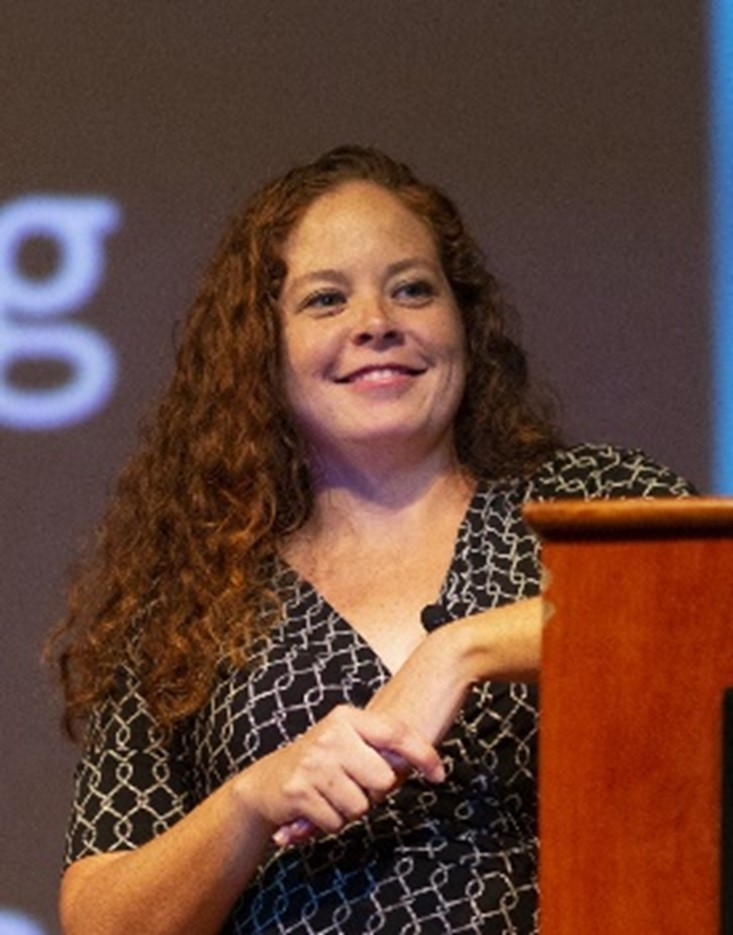
Dr. Erin Baumgartner is the director of the Houston Education Research Consortium at Rice University’s Kinder Institute for Urban Research, which bridges research, policy, and practice to solve critical problems facing the nation’s fifth-largest metropolitan area.
In partnership with Houston-area school districts representing over 700,000 students, teams under her direction are pursuing a research agenda focused on equity, opportunity, and access for students. Topics include early childhood education, social and emotional learning, postsecondary readiness, school choice, teaching and staffing, to name a few.
Baumgartner earned her doctorate from Pennsylvania State University’s dual-degree program in sociology and demography. She holds a master’s in sociology from the University of Chicago and a master’s in education with an emphasis in measurement, evaluation, statistics and assessment from the University of Illinois at Chicago. She earned a bachelor’s in sociology and marketing from the University of Notre Dame.
She has been an instructor at Penn State and Rice University and serves on the Early Childhood Research Quarterly editorial board. Her primary research and teaching interests are in sociology of education and family; social stratification and demography; the educational role of the family; research methods; and quantitative methods.
Website: https://kinder.rice.edu/centers/houston-education-research-consortium
Talisa L. Dixon
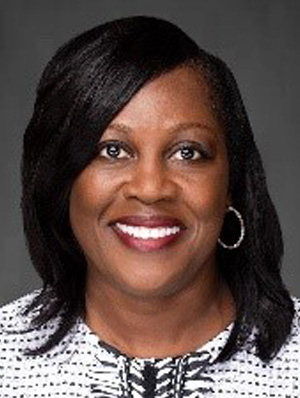
A veteran educator and longtime champion of equitable opportunities and student voice, Dr. Talisa Dixon is in her fourth year as the Superintendent and Chief Executive Officer of Columbus City Schools.
Her 25-year (and counting) career in public education began in Akron Public Schools, where she served as a social studies teacher, then assistant principal.
Website: https://www.ccsoh.us/Page/1162
Anny Castilla Earls
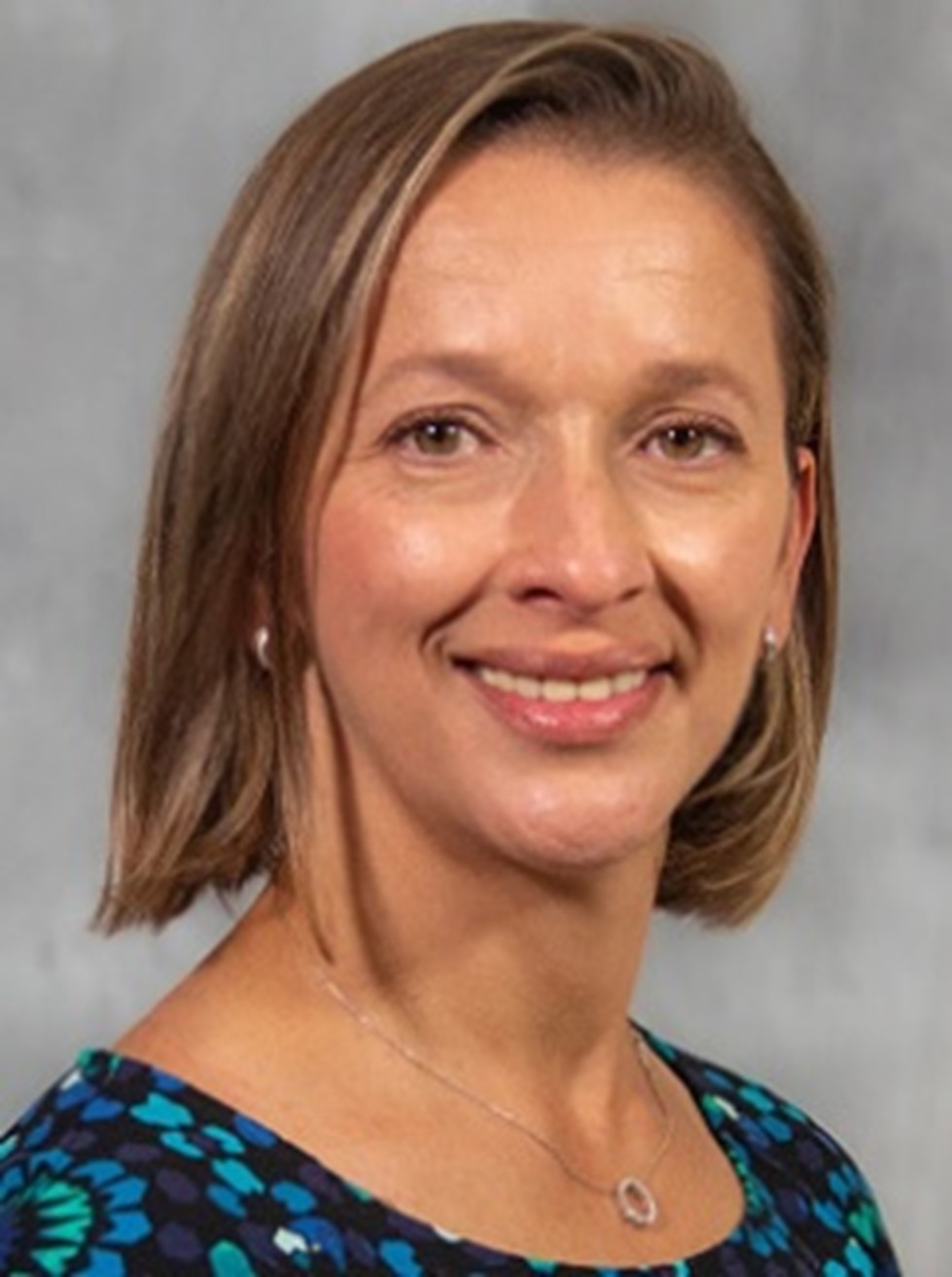
Dr. Castilla-Earls obtained her PhD from the University of Toronto in 2008. She is a Professor in the Department of Communication Disorders and Sciences at the University of Houston. Dr. Castilla-Earls’ primary research interests are language development, assessment, and disorders in monolingual and bilingual children. Her current research explores approaches to differentiate typically developing bilingual children from bilingual children with language disorders by (a) examining differences between monolingual and bilingual development, and (b) studying the effect of language exposure shifts on bilingual development. Dr. Castilla-Earls’ current research is funded by the National Institute of Deafness and Other Communication Disorders.
Website: https://www.uh.edu/class/comd/people/faculty/anny-castilla-earls/
Michelle Erskine
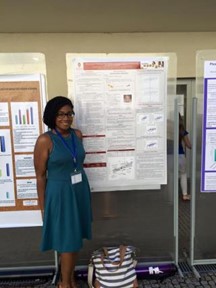
Michelle received her MS in Speech Language Pathology from the University of Wisconsin- Madison. Her current research focuses on the relationships among literacy development, language development, and phonological acquisition in culturally and linguistically diverse populations. She is also interested in the intersection among language, literacy, and poverty.
Website: https://hesp.umd.edu/gradprofile/erskine/michelle
Donna Y. Ford

Donna Y. Ford, PhD, is a Distinguished Professor of Education and Human Ecology and Kirwan Institute Faculty Affiliate at The Ohio State University's College of Education and Human Ecology. She is in the Educational Studies Dept., Special Education Program. She returned to OSU in Aug. 2019.
Professor Ford was formerly an endowed chair at Vanderbilt University in the College of Education. Dr. Ford has been a Professor of Special Education at the Ohio State University, an Associate Professor of Educational Psychology at the University of Virginia, and an Assistant Professor at the University of Kentucky.
Professor Ford earned her Doctor of Philosophy degree in Urban Education (educational psychology) (1991), Master of Education degree (counseling) (1988), and Bachelor of Arts degree in communications and Spanish (1984) from Cleveland State University.
Professor Ford conducts research primarily in gifted education and multicultural/urban education. Specifically, her work focuses on: (1) the achievement gap; (2) recruiting and retaining culturally different students in gifted education; (3) multicultural curriculum and instruction; (4) culturally competent teacher training and development; (5) African-American identity; and (6) African-American family involvement. She consults with school districts, and educational and legal organizations on such topics as gifted education under-representation and Advanced Placement, multicultural/urban education and counseling, and closing the achievement gap.
Professor Ford has written over 300 articles and book chapters; she has made over 2,000 presentations at professional conferences and organizations, and in school districts.
Website: https://www.drdonnayford.com/
Lisa Green
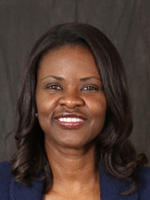
Distinguished University Professor
Lisa Green holds a PhD in Linguistics from the University of Massachusetts Amherst. She returned to UMass after eleven years in the Department of Linguistics at the University of Texas at Austin. Green is the founding director of the Center for the Study of African American Language at UMass Amherst. Its goal is to foster and integrate research on language in the African American community and applications of that research in educational, social, and cultural realms. The Center will serve as a resource for communities across the country, with a commitment to furnishing information and training to educators who address language- and dialect-related issues. In Fall 2009, Green was an Old Dominion Fellow in Linguistics at Princeton University.
Green’s research investigates variation within and across varieties of English, with a focus on African American English (AAE). In moving away from the traditional approach of studying isolated features of AAE that differ maximally from constructions in the standard and mainstream varieties of English, she considers systems in the AAE grammar, such as the systems of tense/aspect marking and negation. Green’s work also explores the link between discourse and structural positions of elements in the left periphery. Her work on child AAE addresses questions about optionality and variation in language development.
In her undergraduate teaching and workshops on dialects, Green considers ways of integrating linguistic description and practical application and conveying such strategies to diverse audiences.
Website: https://www.umass.edu/linguistics/member/lisa-green
Sharon Hill
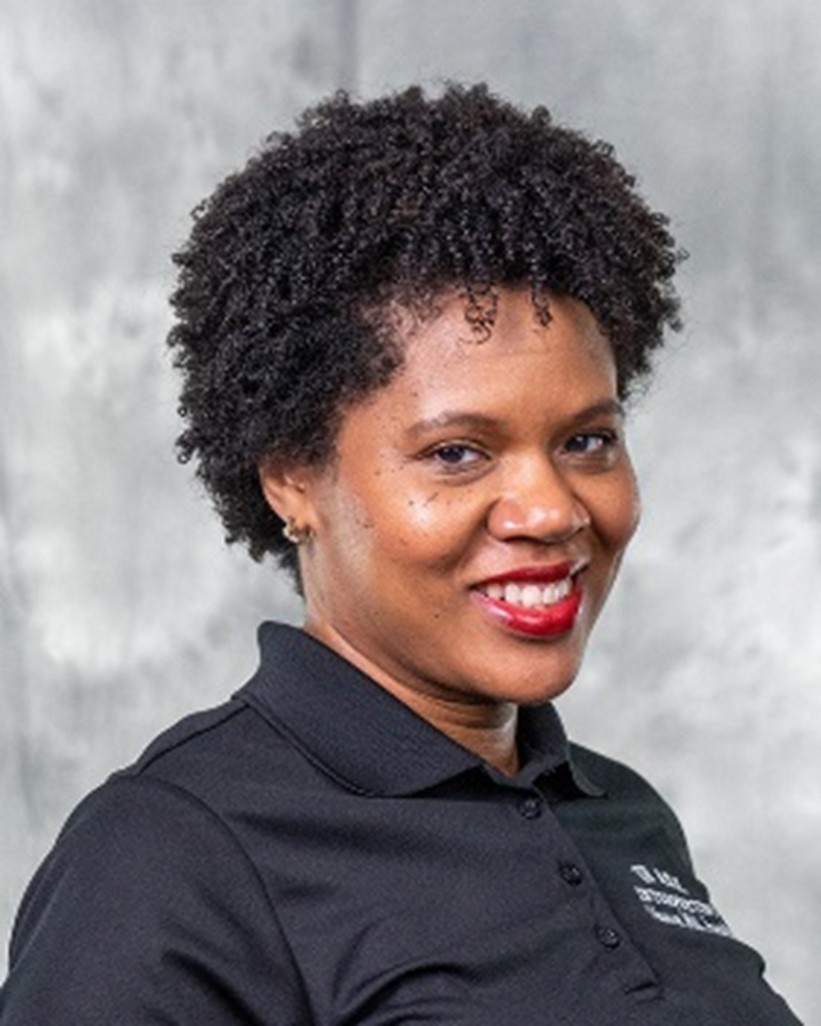
Sharon Grigsby Hill is an Instructional Assistant Professor and the Director of the ASLI program. She has been interpreting professionally for 26 years and is a Master Level interpreter, which is the highest level of interpreting certification awarded by the Board for Evaluators of Interpreters (BEI). She also holds a Level IV and Medical Interpreter certification. She has completed doctoral work in the Interpretation and Translation Studies from Gallaudet University and is recently submitted her PhD thesis entitled "The impact of AAVE on the work of non-deaf ASL/English interpreters" to the University of Birmingham in England.
Website - https://uh.edu/class/comd/people/faculty/sharon-grigsby-hill/
Catherine Horn
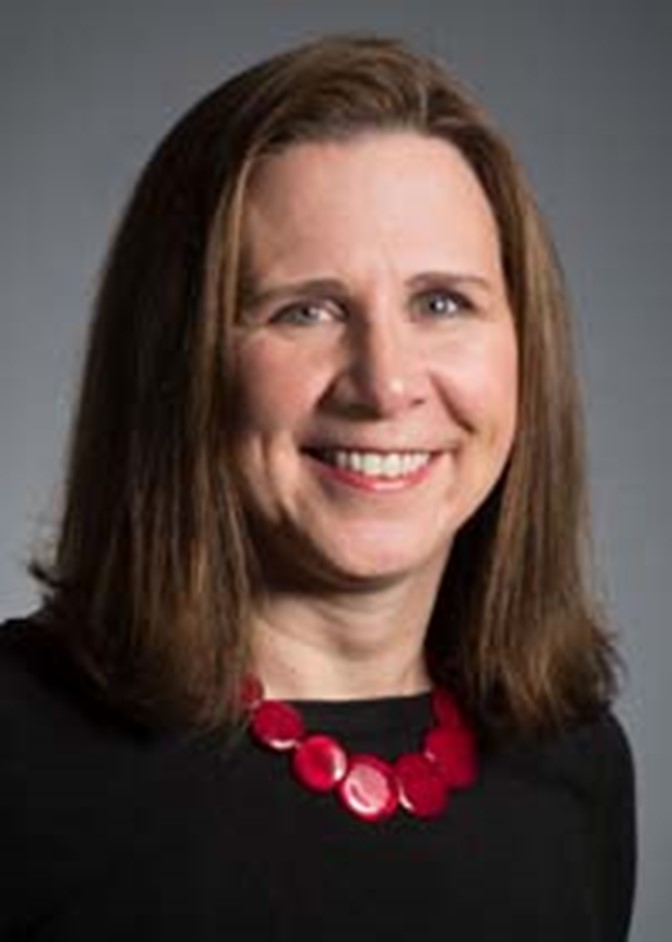
Catherine “Cathy” Horn, Ph.D., became interim dean of the UH College of Education on Aug. 1, 2022. Her research primarily focuses on the systemic influences of assessment and related policies on the learning trajectories of students, especially those traditionally underserved by the education and social sectors. Her other research areas of interest include systemic barriers to college access for traditionally minoritized and marginalized students; K-12 high stakes testing; college admission policy; research use; and quantitative methods.
A Moores Professor of Higher Education, Horn serves as executive director of the Institute for Educational Policy Research and Evaluation. She also serves as director of the Center for Research, Evaluation and Advancement of Teacher Education and director of the UH Education Research Center, one of three such state-approved entities with access to Texas’ PK-20 and workforce data. She is a faculty affiliate of the Hobby School of Public Affairs and the Elizabeth D. Rockwell Center on Ethics and Leadership.
Horn joined the UH College of Education faculty in 2005 and served as chair of the Department of Educational Leadership & Policy Studies for five years.
She previously worked for The Civil Rights Project at Harvard University, the National Board on Educational Testing and Public Policy at Boston College, and the Houston Independent School District as a high school teacher. Her work challenges an isolationist problem solving (or not solving) model and has resulted in co-creation of rigorous and shared value systems and research-based outcomes to improve educational equity.
She has been honored with numerous awards, including a Fulbright Fellowship to Chile, a UH Teaching Excellence Award, and appointment as an American Council on Education Fellow. She is a past president of the UH Faculty Senate and former chair of the College of Education Faculty Executive Committee.
Link: https://www.uh.edu/education/about/directory/employee-profile/index.php?id=300
Walter Hull
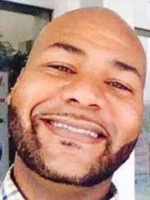
Website: https://www.informed-change.com/walter-bio
Clifford Lee
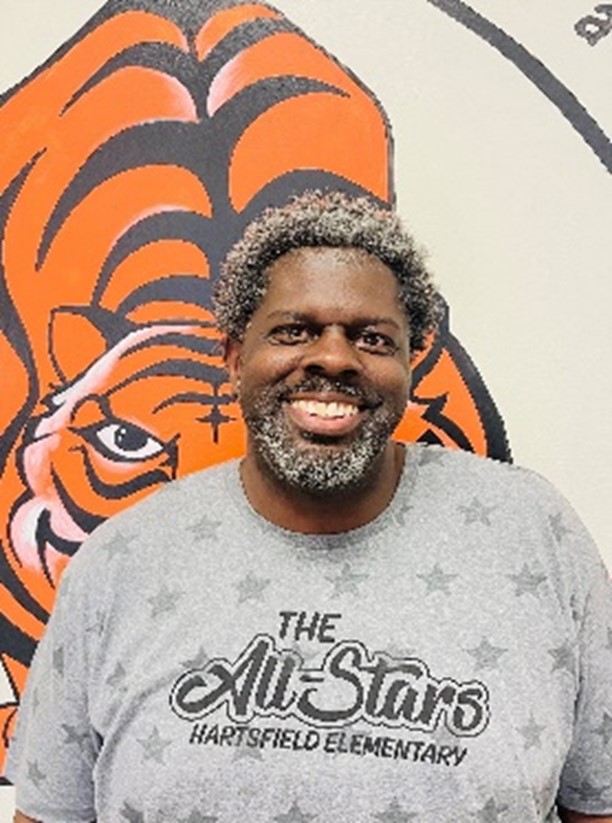
Mr. Lee is a native Houstonian and a proud HISD alumnus. Following in the footsteps of his parents, who are both retired educators, he has been involved in education for nearly two decades. His stellar career in education has included a campus teacher of the year award and the opportunity to impact scholars in multiple grade levels. Mr. Lee’s passion for leading young people to achieve greatness in every aspect of their lives has driven him to start impactful campus initiatives such as a one-to-one mentoring program, chess club, basketball program, video editing club, photography club, and a gardening club. Clifford received his bachelor's degree from the University of Houston in Interdisciplinary Studies and is currently pursuing his master’s degree from Lamar University. Mr. Lee believes in preparing scholars for their future and strives to live out his favorite educational quote every day.
“Education is the passport to the future, for tomorrow belongs to those who prepare for it today” - Malcolm X
Website: https://www.houstonisd.org/Page/169406
Eunjeong Lee
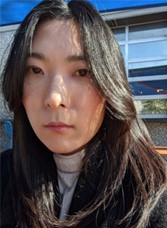
Eunjeong Lee is an Assistant Professor of Linguistics and Rhetoric and Composition at University of Houston. Her research centers around literacy practices of multilingual writers, the politics of language, language ideologies and equity issues in teaching of literacy and literacy teacher education, and decolonial language and literacy education. Her work has appeared in Composition Forum, Journal of Language, Identity, and Education, World Englishes, and Journal of Multicultural Discourses, and in edited collections such as Crossing Divides and Translinguistics. She is also a regular contributor at Koreatimes.
Website: https://www.uh.edu/class/english/people/faculty/lee-e/
Amy Lerman
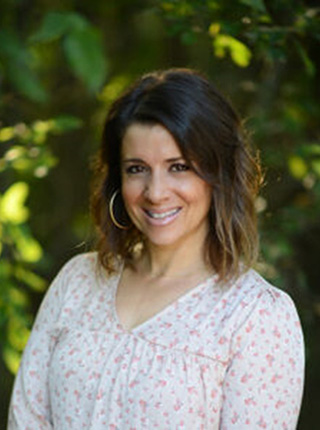
Amy is a speech-language pathologist and the Community Outreach and Social Thinking Specialist at The Parish School. She holds a BS in Communication Sciences and Disorders from the University of Texas at Austin and a MA in Speech- Language Pathology from The George Washington University. Amy specializes in Social Thinking®, an intervention and assessment framework dedicated to tackling the complex social-emotional learning needs of individuals with social learning challenges, and recently participated in the Level 1A Clinical Training in San Jose, CA.
Amy came to The Parish School in 2006, when she started as a lead SLP in the Early Childhood classrooms. Before joining the Parish team, she spent seven years working for Plano ISD, and three years in private practice in San Antonio doing “push-in” speech therapy and social learning groups for children ages 4-9 years old. During this time, Amy was the recipient of grant monies toward the development of Core Language Kits for the three early childhood schools in Plano ISD, and towards supporting families with children enrolled in speech/language, occupational and behavioral therapy in San Antonio.
Of all the places she’s worked, Amy loves The Parish School the most. She values the supportive and collaborative staff who believe so deeply in Parish’s mission to serve its students. She also appreciates The Parish School administrators, who recognize individual strengths in employees and set up structures for them to grow through collaboration, continuing education and regular professional feedback exchanges.
Through her roles at The Parish School, Amy feels privileged to play a small part in the awesome task of raising children. When a child is struggling to succeed at home or in school, she feels honored to be included in developing the communication and programming necessary for that child to make gains and ultimately reach their full potential.
Amy is married to a lawyer-turned-pediatrician, Marshall Lerman, and is the mother of two dynamic girls, Lyla and Sunny. In her spare time, she enjoys practicing yoga, being outdoors, camping, and attending events in the community.
Amy was The Parish School’s “Therapist of the Year” in 2020.
Website: https://parishschool.org/about/directory/
Traci Lightfoot
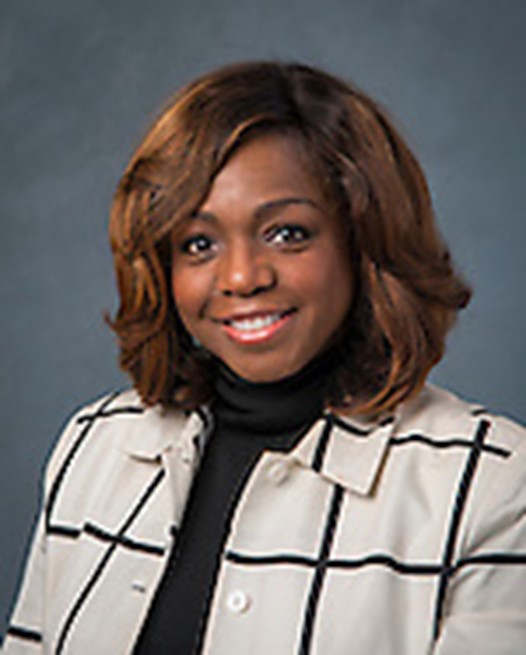
Traci Bryant Lightfoot has been appointed principal of Bruce Elementary. Ms. Lightfoot has served in a variety of roles during her 24 years in education, including teacher, program coordinator, instructional coach, and assistant principal. She began her career in HISD as a fifth-grade teacher and campus specialist at Barrick Elementary. She also served as a national trainer and school improvement specialist at the University of Houston. After two years of assisting struggling schools, Ms. Lightfoot worked at Klein ISD as an instructional specialist and program coordinator of Title 1 schools for five years. She returned to HISD in 2011 as a science teacher at Cullen Middle School and was named assistant principal one year later.
Ms. Lightfoot received her bachelor’s degree in Business Administration from Abilene Christian University and her master’s degree in Education from Prairie View A & M.
Nicole Luthy
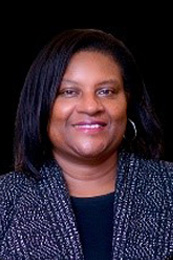
Dr. Nicole Carter Luthy is the Chief of Staff and Director of Strategic Operations for the College of Education and Human Ecology. In this role, Dr. Luthy works closely with the Dean and other college leaders to set the strategic direction of the college and lead key initiatives.
Over the course of her 25 years in education—which began as a classroom teacher—Dr. Luthy has focused on building partnerships among higher education institutions, K-12 schools, and community-based organizations. She has led state and national projects, served as director of a digital learning center, and collaborated with schools and community organizations to support, serve, and improve outcomes for teachers, students, and families.
Dr. Luthy holds a PhD in Teaching and Learning from the College of Education and Human Ecology at The Ohio State University. She also holds a B.A. from Emory University and an M.A. from The Ohio State University.
Website: https://edge.ehe.osu.edu/team/nicole-luthy/
Christine Mallinson
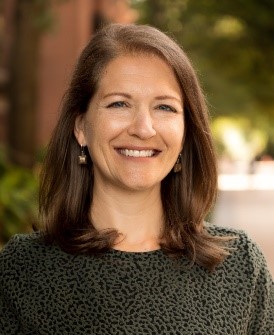
I am Special Assistant for Research and Creative Achievement in the Office of the Vice President for Research, Director of the Center for Social Science Scholarship and Professor of Language, Literacy, and Culture and Affiliate Professor of Gender, Women’s + Sexuality Studies at UMBC. I also currently hold a 2022-23 APLU-Council on Research (CoR) Research Leader Fellowship.
As Special Assistant for Research & Creative Achievement, I help advance UMBC’s mission by working with the Vice President for Research & Creative Achievement to support the growth of our campus-wide efforts as a newly designated R1 university. Among other projects, I am working to launch a campus-wide program to establish grant-writing academies designed to catalyze NIH research funding for UMBC faculty.
As the founding Director of the Center for Social Science Scholarship (CS3), UMBC’s sole comprehensive social science research center, I am proud to lead in supporting faculty, graduate, and undergraduate students across more than 20 departments and programs across in the College of Arts, Humanities & Social Sciences. Established in 2018, our broad ambition is to promote excellence in and to amplify the highly-ranked social sciences at UMBC. By sponsoring and coordinating speakers series, events, trainings, and internal grants and fellowships, we provide comprehensive interdisciplinary research support and mentoring to faculty, graduate students, and undergraduate students. As Director of CS3, I supervise a stellar staff, including staff in our grants administration unit, which provides a high level of pre-award and post-grant management support to about 50 PIs in the social sciences. I also work closely with an Associate Director and a 7-member faculty advisory board.
My research, teaching, and engagement reflect my longstanding personal commitment to carry out and apply engaged academic work within a social justice framework. In my interdisciplinary work, which lies at the center of the fields of linguistics, education, and sociology, I comprehensively examine language as a socially and culturally contextualized behavior and practice, and I work to dismantle deficit notions surrounding cultural and linguistic difference in ways that are community-centered while also informing educational policy and practice. My work has provided key, concise information to thousands of educators about language variation in English, particularly regarding the language practices of Black, U.S. Southern, and Appalachian communities, via a participatory-based research framework. This work has contributed to theoretical models of how language is used by students from historically marginalized groups in educational contexts from Pre-K through graduate school. It has been adopted into and informed state and local curricular and educational policy frameworks, and my books are used in courses that center on language worldwide. I have received funding to support my research from non-profits as well as federal agencies including the National Science Foundation.
I am also the immediate past chair and a continuing member of the Ethics committee of the Linguistic Society of America, where I also serve on the Committee for Ethnic Diversity in Linguistics. I am the former associate editor of the journal American Speech (2008-18).
Personal: https://christinemallinson.com/
University: https://llc.umbc.edu/dr-christine-mallinson/
Rachael Marsh
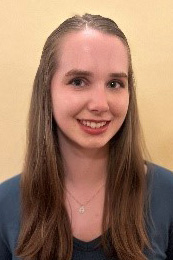
Rachael Marsh is an undergraduate in Communication Sciences and Disorders at the University of Houston. She has been a research assistant in the Child Language Ability Lab since March of 2020, under the direction of Dr. Monique T. Mills. She serves as project coordinator for this collective.
Monique Mills
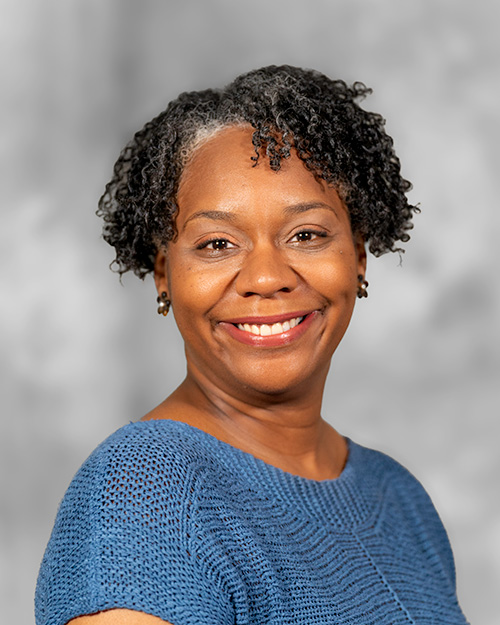
Professor Mills’s research program employs mixed methods to examine the cognitive, social, and linguistic resources that school-age African American children draw upon to narrate or tell stories. She directs the Child Language Ability Lab which is currently engaged in projects examining narrative assessment and dialectal code-switching between African American English and Mainstream American English. Mills teaches her students about language development, language variation and research methods in communication sciences and disorders. She believes that her utmost vocation, or calling, is to help humans thrive. In addition to her work, Mills loves being on her couch, cooking, hiking, listening to music, playing with new ideas, reading, spending time with friends and family and thrift shopping.
Website: https://www.uh.edu/class/comd/people/faculty/monique-t-mills/
Leslie C. Moore
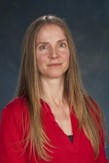
I am Associate Professor of Teaching and Learning (by courtesy) Linguistics. I am an applied linguist and a linguistic anthropologist. My research examines the social and cultural patterning of learning and language development in communities whose members use multiple languages and participate in multiple learning traditions. Within the Department of Teaching and Learning, I am a core faculty member of two areas of study: Language, Education, & Society (LES) and Foreign, Second & Multilingual Language Education (FSMLE). I am also affiliated with the Department of Germanic Languages and Literatures and four graduate interdisciplinary specializations: Language Sciences, Literacy Studies, Second Language Studies, and Applied Developmental Science. I teach courses on language socialization, second language acquisition, linguistic diversity in education, and informal language science outreach.
Website: https://u.osu.edu/moore.1817/
Kim Parker
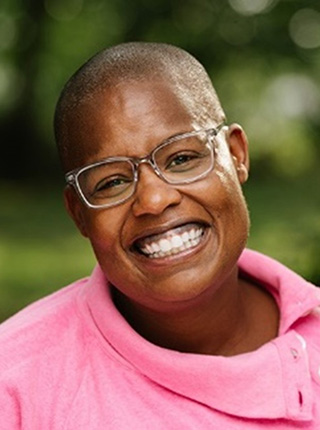
Dr. Kimberly N. Parker is an award-winning educator based in Boston who holds a steadfast belief in the power of literacy to normalize the high achievement of all students, especially Black, Latinx, and other children of color. She is currently the Director of the Crimson Summer Academy at Harvard University, and published Literacy is Liberation: Working Toward Justice Through Culturally Relevant Teaching (Feb. 2022) with the Association for Curriculum and Supervision Development (ASCD). The book documents her successful literacy work based on her classroom and professional development experiences. Kim is the 2020 recipient of the National Council of Teachers of English (NCTE) Outstanding Elementary Educator Award; a co-founder of #DisruptTexts and #31DaysIBPOC; and the current president of the Black Educators’ Alliance of MA (BEAM). Follow her on Twitter at: @TchKimpossible
Website: https://drkimparker.org/
Dr. April Peters-Hawkins
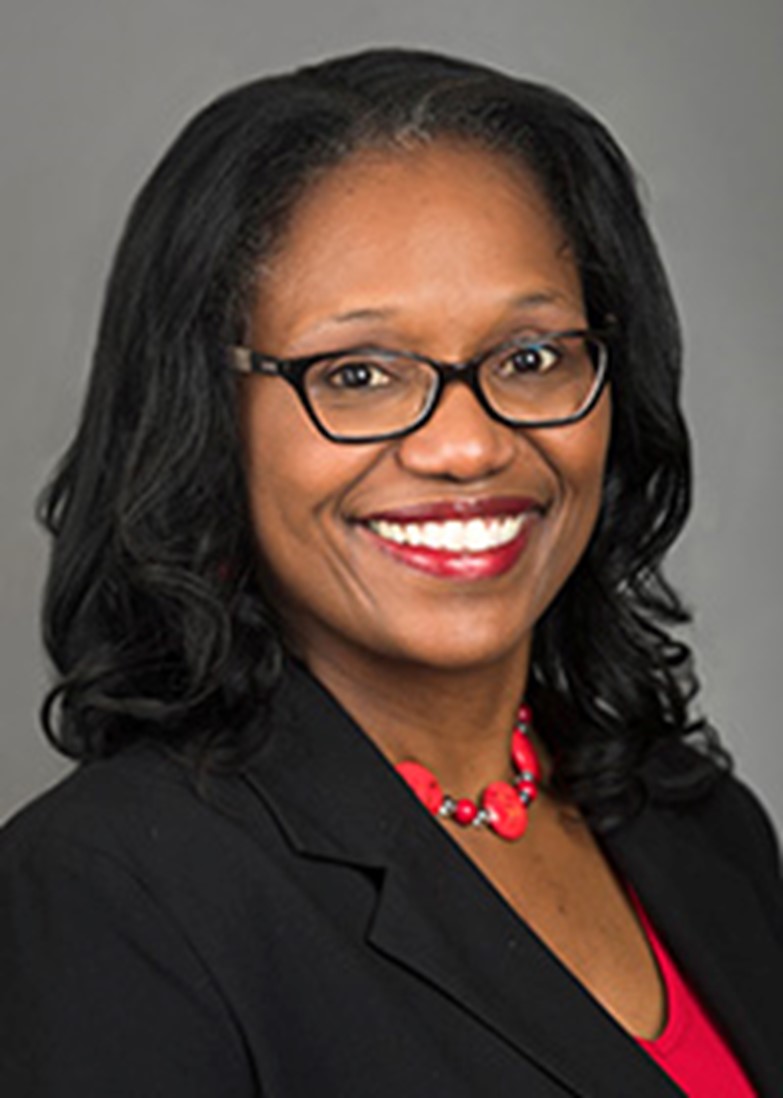
April L. Peters-Hawkins earned a B. S. Ed. from Northwestern University, Evanston, IL, an MSW from Columbia University, and a Ph.D. Educational Policy and Leadership from The Ohio State University in Educational Policy and Leadership. She has worked in the K-12 context in several capacities. April began her career as a TFA teacher. She was a founding faculty member of the North Star Academy Charter School of Newark, NJ, where she was Dean of students. Upon completing her Ph.D., April became a high school principal in Baltimore, MD.
Dr. Peters-Hawkins is the Associate Chair of the Department of Educational Leadership and Policy Studies (DELPS). She is also a Past President of the University Council of Educational Administration (UCEA), a consortium of higher education institutions committed to advancing the preparation and practice of educational leaders for the benefit of schools and children.
April has spent the last sixteen years of her career in academia. She spent the first ten years of her academic career on the faculty at the University of Georgia. Currently, April is Professor and Associate Department Chair in the Department of Educational Leadership and Policy Studies (College of Education) at the University of Houston.
Dr. Peters-Hawkins’ research interests include: (a) examining the ways that districts provide mentoring and support for early career administrators; (b) women in school leadership; (c) leadership and urban small school reform; and (d) effective university and district partnerships.
Stephanie Power-Carter
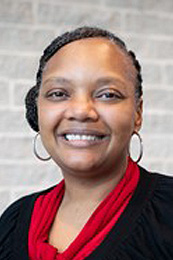
Stephanie Power-Carter is a professor in the Department of Teaching and Learning and the Director of the Center for Video Ethnography and Discourse analysis (CVEDA). Dr. Power-Carter is passionate scholar who in the words of one of her favorite poets Dr. Maya Angelou, “would like to be known as an intelligent woman, a courageous woman, a loving woman, a woman who teaches by being.” Her passion is to engage in research that helps us to see each other’s humanity more fully. She uses discourse analysis a way to see and examine how people use language to negotiate their identities and to better understand how Black youth, and youth from historically resilient communities navigate their educational experiences. Her scholarship examines the resilience, possibility, and potential of Black youth.
Dr. Power-Carter has presented her scholarship nationally and internationally and published in various journals such as Review of Research in Education, Theory into Practice, The Journal of Classroom Interactions, and Trabalhos em Linguística Aplicada. She has also published book chapters and co-authored two books: Discourse analysis and the study of classroom language and literacy events: A microethnographic perspective and an NCRLL project, On discourse analysis in classrooms: Approaches to language and literacy research. Additionally, she occasionally serves as an educational consultant and collaborates with school districts that view equity and inclusion as foundational pillars to teaching and learning and are committed to developing, facilitating, and sustaining socially just educational spaces. In her spare times, she enjoys creative writing, music, and community engagement.
Website: https://ehe.osu.edu/directory?id=power-carter.2
Daniel Price
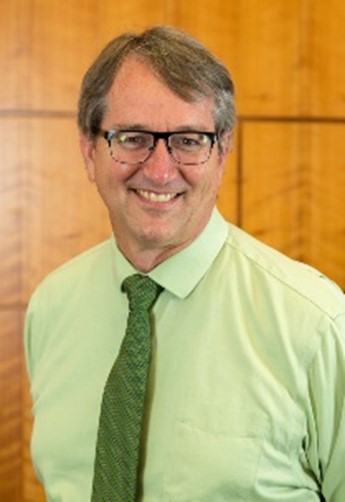
Dan Price received his doctorate in philosophy and directs a number of interdisciplinary projects on community health and data. In addition to continuing projects on air quality and asthma, he has begun a new initiative for creating a network of community health workers who can sustain a data-driven culture of health in the communities.
Website: https://www.uh.edu/honors/about/faculty-staff/dan-price.php
Elaine Richardson
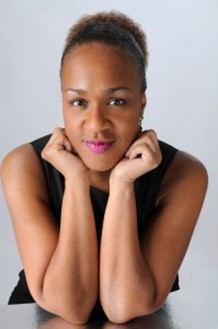
Dr. Richardson is currently Professor of Literacy Studies in the Department of Teaching and Learning at The Ohio State University. Her work in various fields, including Rhetoric and Composition, Literacy Studies, Applied Linguistics, Discourse Studies, and Black Studies has been disseminated through the publication of three single-authored books, four co-edited volumes, thirty-three refereed articles and chapters in edited volumes and such prominent journals as Community Literacy Journal, College Composition and Communication, Journal for the Study of Race, Nation, and Culture, Discourse and Society, Computers and Composition, Journal of Black Studies, Journal of English Linguistics, and the Journal of Commonwealth and Postcolonial Studies.
Prof. Richardson’s exemplary scholarship is complemented by her professional leadership roles and the spearheading of socially oriented initiatives. She has held prominent roles in several committees established by the National Council of Teachers of English, and she has won numerous grants leading to the implementation of community-oriented literacy initiatives. Among the latter are the OSU Hiphop Literacies Conference, which she had directed since 2011, and the Columbus Women&Girls’Fest, which thrive via the forging of community partnerships between her academic department and local schools, agencies, and community groups in the greater Columbus, Ohio area.
Grounded in social justice approaches to language and literacy education, the compendium of Richardson’s work illuminates the importance of discourse in the fashioning of culture and identity. Her critical approach to the role of discourse in society seeks to augment traditional structural approaches to linguistics and literacy studies in order to inform our understanding of the relationships between particular modes of discourse, social privilege, and inequitable distributions of power.
In line with her five previous books, Richardson’s current book-length project, entitled Reading the World with Black Girls, gives an account of her work with Black girls in the afterschool club she established and directed in an under-resourced community in central Ohio. In this work, Richardson strives to center the girls’ stories, incorporating their mothers’ voices, those of other women in the community, and those of scholars, to illuminate the girls’ aspirations and highlight strategies used to avoid raced and gendered societal pitfalls. In this way, Dr. Richardson invites us to imagine investing in Black girls’ literacies for brave new worlds of critical collective consciousness and movement for social justice, as opposed to schooling them to literacy for compliance with larger systems of patriarchal domination, social stratification, and individualism.
Website: https://u.osu.edu/richardson.486/
Byron Ross
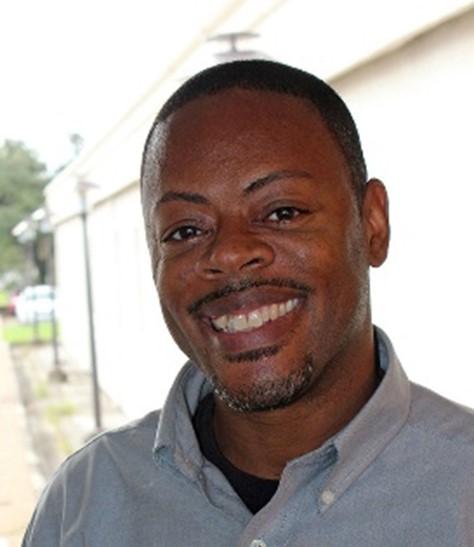
Byron Ross is an Instructional Associate Professor in the Department of Communication Sciences and Disorders. He is a graduate of University of Central Arkansas where he began teaching sign language as a student and eventually became a faculty member in the Department of Speech- Language Pathology upon the completion of his masters degree. He completed his doctorate at the University of Nebraska-Lincoln in Communication Sciences and Disorders. Dr. Ross is very passionate about community and professional service.
Websites:
https://uh.edu/class/comd/people/faculty/byron-ross-phd/
https://uh.edu/class/comd/programs/psmsa/
Quentin Sedlacek
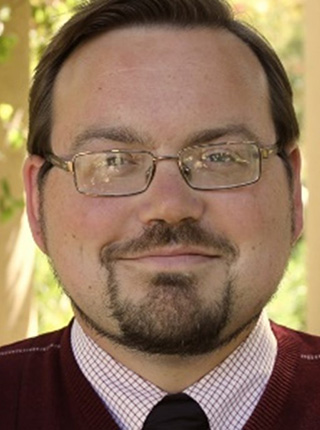
Quentin Sedlacek is an assistant professor of STEM Education at Southern Methodist University. He began his career as a public schoolteacher in Mississippi and American Sāmoa, where he saw how racism, colonialism, sexism, and other systems of oppression worked against his students and colleagues while privileging his own positionality. He joined academia to contest these systems and help advance asset-based, justice-oriented approaches to STEM education. He holds a PhD in education from Stanford University.
University Webpage: https://www.smu.edu/Simmons/About-Us/Directory/Teaching-Learning/Sedlacek
Personal webpage: https://www.quentinsedlacek.com/
Website: https://www.teachingaal.org/
Twitter handle: @TeacherSedlacek
Inda Shaenen
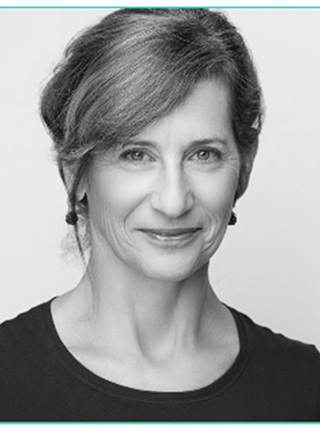
Inda is a St. Louis-based writer, teacher, and researcher with a special interest in multiliteracies and critical approaches to project-based curriculum. She's the founder and executive director of Project Lab St. Louis, a nonprofit that develops and implements project-based curriculum in public schools. In collaboration with the Smithsonian's National Museum of Natural History and the Ferguson-Florissant School District, Project Lab St. Louis is currently building a permaculture garden on the district's Restoration and Wellness campus.
Website: https://www.projectlabstlouis.org/about
Kmt Shockley
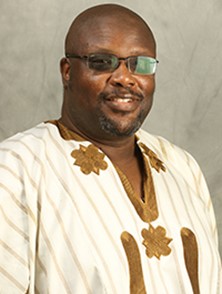
Dr. Kmt Shockley is professor in the University of Houston College of Education, he is also executive director of K.M.T. Productions, which is an organization that does consulting, community building, creates documentary films, and creates educational content. Dr. Shockley has authored dozens of articles and five books focused on the education of Black youth. His two most recent books are entitled Campus Uprisings published by Teachers College Press (2020), and African Centered Education: Theory & Practice published by Myers Education Press (2020). In addition to his work as a professor and researcher, he served as a middle school teacher, charter school leader, lecturer, filmmaker, and he is a board member and reviewer for several journals. Dr. Shockley holds a PhD in Organizational Leadership & Policy from the University of Maryland at College Park.
Dr. Shockley’s present research includes funding to study maroon villages. Maroons are groups of individuals who escaped enslavement and gained freedom from their captors. From that study, which took place in Colombia, South America, he co-created and co-produced the film, “For Humanity: Culture, Community & Maroonage”, which has been featured in national and international film festivals and on PBS Network. Those studies and the film led to the creation of numerous curriculum materials that Dr. Shockley has created and co-created for universities such as Howard University and for foundations such as the Verizon Foundation. Dr. Shockley has co-created one feature length documentary, 7 short films for children which are also featured on PBS, and he has recently created 10 curriculum enhancement materials for teachers of Black children including children’s books, “period newspapers” and numerous historical documents. Dr. Shockley is currently creating a feature length documentary film focused on education and Black youth. Dr. Shockley served as Director of the Verizon Innovative Learning program, which is a grant he received from the Verizon Foundation to create a program that invites African American and Latino youth to the university for exposure to the latest technology and cultural enrichment.
Dr. Shockley is also a researcher and consultant in numerous school districts, and he has published articles from that work in journals such as the International Journal of Qualitative Studies in Education – Shockley won an award for “Best Article in a Scholarly Journal” from the Cheikh Anta Diop Society for that research. He has also received funding to study the work of organizational leaders in Oklahoma City, OK. Dr. Shockley also recently served as lead professional developer in the Washington, DC Public Schools for their Empowering Males of Color initiative. Recently, Dr. Shockley has consulted in the Blackville, South Carolina School District, Indianapolis Public Schools, Los Angeles Unified School District, Cincinnati Public Schools, Baltimore County Schools, Baltimore City Schools, and he consults with numerous universities including a current partnership with the University of North Carolina, Chapel Hill, a consulting partnership with the University of Pittsburgh, and a consulting partnership with Columbia University. Current corporate consultancies include partnerships with General Assembly corporation, The Nature Conservancy, and the Washington Commanders. Dr. Shockley routinely conducts education and business-related workshops across the country focusing on issues related to culture, curriculum, and the importance of work that makes Black communities better.
Dr. Shockley has won numerous awards for his research work including the Mariam Maat 2011 Scholars Best Research Award, the Cheikh Anta Diop 2018 Best Research in a Scholarly Journal award for his research on African Centered Education, and most recently he received the Society of Professors of Education 2021 Outstanding Book Award, and he won the American Educational Studies Association 2021 Critics Choice Book Award for his co-edited book entitled African Centered Education: Theory & Practice.
Jamie Mahurin Smith

Dr. Jamie Mahurin Smith is an associate professor in CSD. She is also a speech-language pathologist and a board-certified lactation consultant. She studies short- and long-term outcomes for children who have experienced early medical challenges, such as prematurity.
Website: https://csd.illinoisstate.edu/faculty/all/profile/?ulid=jmsmit3#fs-tabs-accord3
Jane Tragesser
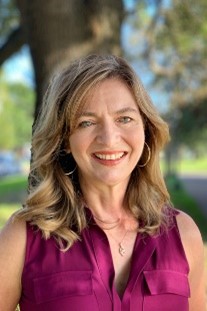
Jane Tragesser earned her B.S. and M.A. degrees in Communication Disorders from the University of Houston. Prior to joining the University Speech-Language-Hearing Clinic: A United Way agency as clinic director, she worked in the public schools providing speech and language services to preschool and school-age children, and organizing workshops to educate teachers, parents, and other related professionals about communication disorders.
Website: https://uh.edu/class/comd/people/staff/jane-tragesser/
Cheryl Varghese

Dr. Cheryl Varghese is an Assistant Professor in the Children’s Learning Institute and serves as the Director of Intervention Research for the Texas State Initiatives division within the Children’s Learning Institute. Dr. Varghese’s research interests include developing and scaling professional development models for early childhood practitioners (e.g., teachers, coaches, trainers), implementation fidelity, and teacher-child interactions within early childhood contexts.
Dr. Varghese’s research interests around professional development for early childhood practitioners are reflected in her work on several federally- and state-funded projects. Dr. Varghese currently serves as Co-PI of the Core Coaching Competencies Professional Development (C3PD; R305A210075), which is a development grant focused on training and learning opportunities for early childhood coaches. She also serves as Co-PI of the Coaching for Continuous Quality Improvement study that is focused on enhancing coaching skills for Texas Rising Star mentors. Dr. Varghese is a Co-Investigator on a grant contrasting three different professional development models for pre-k teachers (R305A180406; PI: Dr. Crawford). She is also Co-PI of the Early Childhood Education Partnerships (ECEP) project that expands on competency-based frameworks for early childhood educators. The aforementioned projects leverage a comprehensive micro-credential system (co-developed with Dr. Crawford) that utilizes digital badging to recognize specific and observable skills across practitioners (e.g., coaches, trainers, tutors).
Website: https://med.uth.edu/pediatrics/faculty/cheryl-varghese-phd/
Lisa Williams
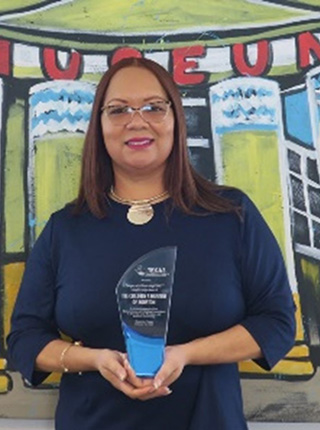
Lisa Williams, Ph.D., Director of Gallery Programs at the Children’s Museum Houston, has over 30 years of experience in the field of education. Dr. Williams earned a BS in Education and a Masters in Curriculum and Instruction from Cleveland State University. She also earned an Education Specialist and Doctor of Philosophy degree in Educational Leadership from Oakland University. Dr. Williams has served as an early childhood, elementary, and middle school teacher. She has also taken on a variety of leadership roles including Curriculum Leader, Literacy Coach, Dean of Students, Principal, and Central Office Administrator through her work with the Cleveland Public Schools, Pontiac Schools, and Houston Independent School District. In her current role at the Children’s Museum, Dr. Williams is focused on program alignment, high impact visitor experiences, and making ongoing improvements to maximize innovation and overall growth.
Website: https://www.cmhouston.org/outreach-programs/flip
Donald Winford
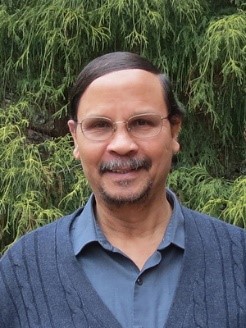
Donald Winford is currently Professor of Linguistics at the Ohio State University. His teaching and research interests are in creole linguistics, variationist sociolinguistics, contact linguistics, and African-American English. He is the author of Predication in Caribbean English Creoles (1993), and An Introduction to Contact Linguistics (2003). He served as President of the Society for Caribbean Linguistics from 1998 – 2000, and as President of the Society for Pidgin and Creole Linguistics from 2016 - 2017 and was been editor of the Journal of Pidgin and Creole Languages from 2001 to 2021.
Department webpage: https://linguistics.osu.edu/people/winford.1
Personal Webpage: https://www.asc.ohio-state.edu/winford.1/?_gl=1*1rnt3wy*_ga*MjA1MTMyNjM3NS4xNjUxNTIwMTMw*_ga_09WC99HMPE*MTY2NDcyMDIxNy44LjEuMTY2NDcyMDI5MC41OS4wLjA.
Jill Wood
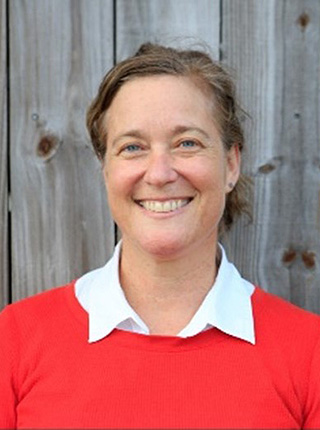
Jill Wood founded and manages Adventure Play, an outdoor, child-directed after school program at The Parish School in Houston Texas, where she has also served as school librarian for the last 18 years. Established in 2008, Adventure Play is modeled after adventure playgrounds in the United Kingdom and uses the professional approach of playwork to support children’s play. It is one of only a handful of such playgrounds in the United States and the only one based at a school for people with communication delays and learning differences.
Jill is also founder of Bayou City Play, a group of artists, librarians and therapists, who partner with organizations to support and improve play opportunities for Houston’s children. Bayou City Play has collaborated with public libraries, schools, parks, and hospitals since 2014 to promote the importance of children’s voices and culture through community gatherings and education. She is also a regional consultant and speaker for Pop-Up Adventure Play, a UK-based organization that advances the field of playwork through trainings, presentations, research and publication. This past year she co-founded Free Play Houston, a group of caregivers focused on protecting the right to play in the Houston metro region.